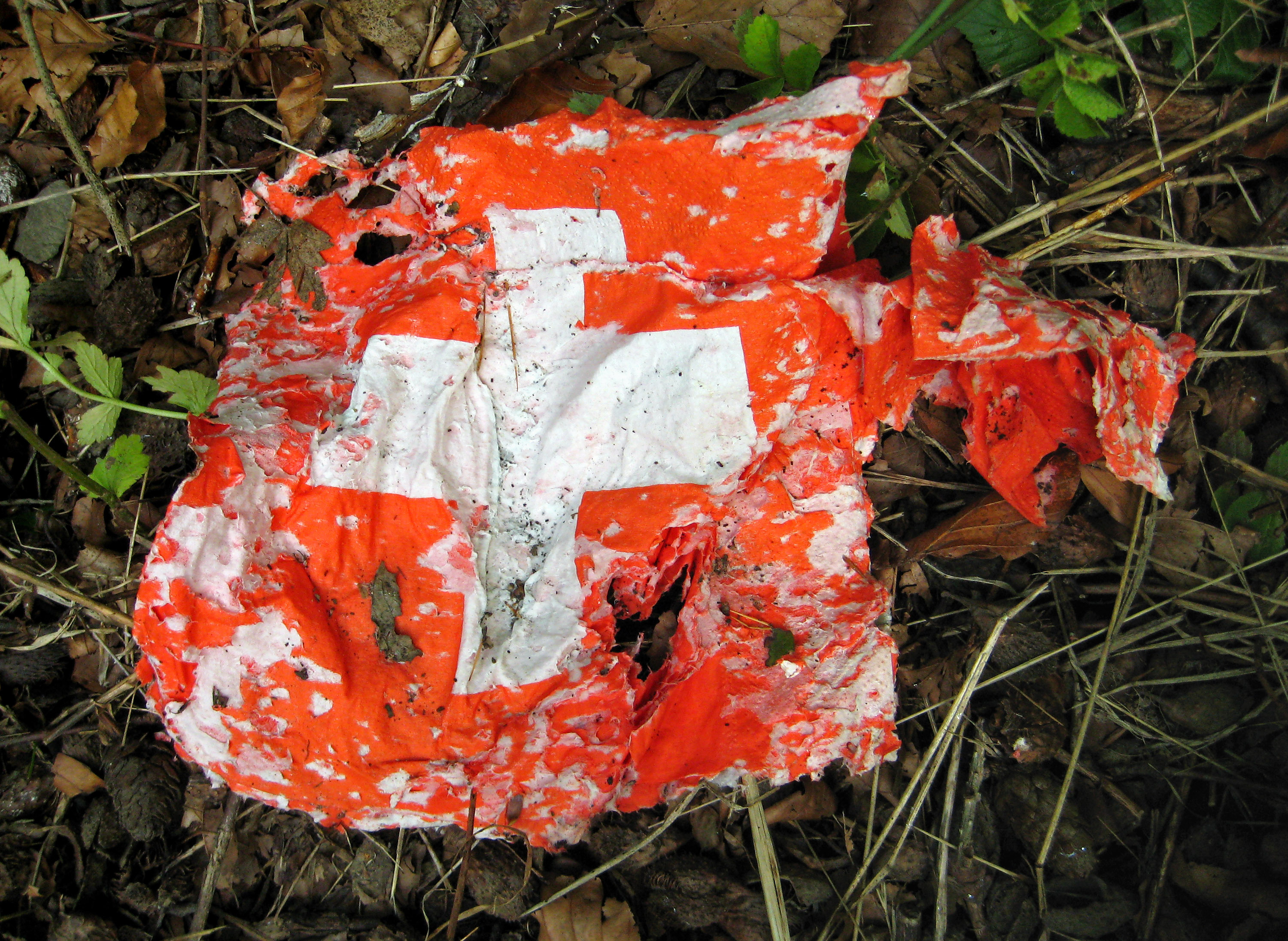
Switzerland on the box, but what’s inside?

Switzerland as a brand is deserving of better protection. But what constitutes a product’s Swissness is still very much up for debate, with different interest groups trying to impose a legal definition that suits them best.
Switzerland has benefited from its good reputation: Swiss made has long been a byword for quality and that in turn has generated healthy profits. But because the brand has not been sufficiently protected, others beyond the border have been making a tidy sum with it too.
The first time anyone paid close attention to the origin of so-called Swiss made products was in 1991, when the country celebrated the 700th anniversary of its what is traditionally regarded as the founding act of Switzerland.
“There were dozens of products on the market with Swiss crosses and flags that were not made in Switzerland at all,” said trademark lawyer Jürg Simon.
According to a study by researchers at St Gallen University, a Swiss made label on a product can generate up to 20 per cent more profit, although this varies from sector to sector.
“There is effectively an added value with the label, inside or out of Switzerland,” said Stefan Feige, one of the study’s authors.
This added value is what has attracted entrepreneurs ready to play with the truth. A Swiss cross plastered onto a product means a higher selling price, and the number of companies abusing the label has increased as they realise they can act with almost total impunity.
But with the legal loopholes becoming truly apparent, parliament has begun seeking ways of better protecting the brand.
“The reputation will be lost if anyone can use the term Swiss for their marketing,” Simon told swissinfo.ch. “It will be detrimental to all those who actually manufacture their products in Switzerland.”
That loss of reputation has already happened though according to some observers. “The Swiss brand is already no longer an indicator of reliability,” pointed out Sara Stadler, director of the Swiss Consumer Foundation.

More
Cosmetic producers demand more Swissness
Legal headache
The jury is still out on just what constitutes a Swiss product, especially when some of its parts are manufactured elsewhere. For Simon, a product should be labeled Swiss made based on precise criteria.
But defining what legally constitutes Swissness has been a headache for parliament for years. With too many interest groups intervening, it has boiled down to a fight over the finer details, and with the Senate and House of Representatives failing to agree, legislation remains blocked.
The biggest hurdles so far have been deciding what percentage of Swiss ingredients and parts should be included in food and manufactured products to called Swiss. The watch industry is split over the issue, while farmers who want a high percentage of Swissness for their products are opposed to the food industry, which is demanding more flexibility.
Observers say that the debate has led to some improvements such as the introduction of geographical-based brands and more opportunities for government intervention. But they also warn that getting bogged down in the details is problematic.
Anastasia Li-Treyer, head of the Swiss consumer brand association Promarca, points out these is no general idea of what Swissness should be and with little raw materials of its own, Switzerland cannot afford to be too picky.
“If only a few companies can use Swiss branding for their products because we have set the bar too high, it won’t have any impact,” she said. “And if the food industry stops producing in Switzerland, farmers won’t have buyers for their products anymore.”
She reckons that some companies are already asking themselves if they still want produce in Switzerland. “How much the country stands to gain or lose from the implementation of Swissness rules depends to what extent we are prepared to jettison a purist stance and agricultural protectionism,” she added.
The consumer foundation backs a strong position, fearing watered-down legislation.
“If it says Swiss on the box, it should be Swiss inside,” said Stadler. “We want to protect consumers from being deceived.”
Think long-term
While new legislation is stalled, copycats are happy. But for companies that need to plan long-term, the strain is evident says Thomas Pletscher of the Swiss Business Federation, economiesuisse.
The local cosmetic industry has developed a marketing strategy around the Swiss made concept, for example, and would like to implement it. “But it can only be the case when sectorial regulations are approved and the new legislation has been accepted,” added Pletscher.
Feige agrees that the lengthy delays could do more harm than good. Many firms, he says, could delay any decisions to repatriate production in Switzerland or to use Swissness as a marketing peg.
Simon reckons there is some hope though. “I’m convinced that parliament will work its way through the problem in spring and the new legislation will go into effect by 2015 at the latest,” he said.
(Translated from German by Scott Capper)

In compliance with the JTI standards
More: SWI swissinfo.ch certified by the Journalism Trust Initiative


























You can find an overview of ongoing debates with our journalists here . Please join us!
If you want to start a conversation about a topic raised in this article or want to report factual errors, email us at english@swissinfo.ch.